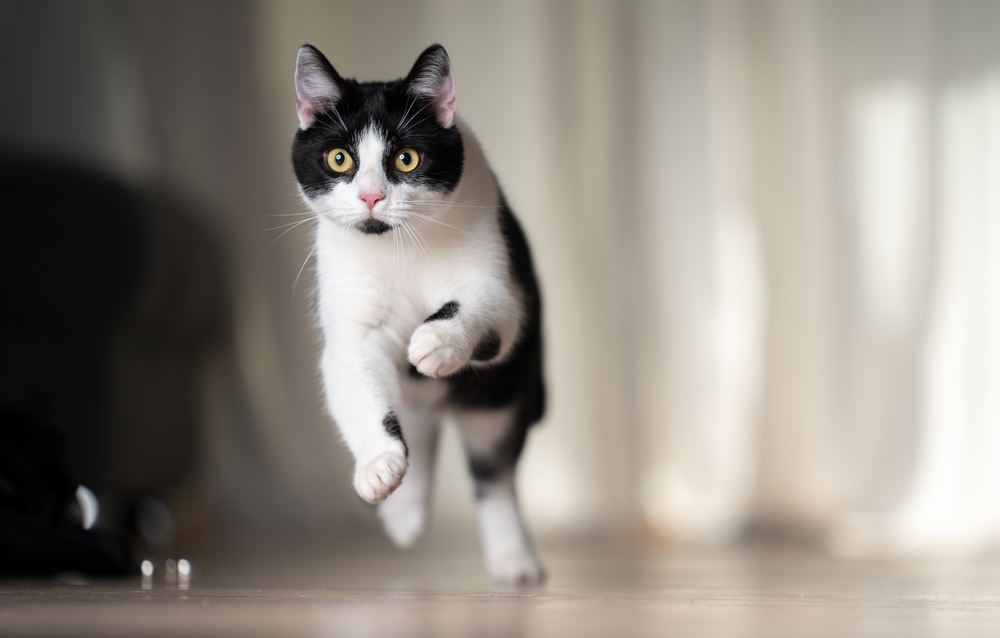How to Survive Nights with a Hyperactive Cat
Do you have a hyperactive cat? Meowing at all hours. Incessant scratching. Zoomies. All the zoomies. Doesn’t it always seem like your cat goes into hyperactive mode when you’re trying to wind down for the night? This hyperactivity, or “midnight crazies,” can be difficult to deal with—especially when it starts to mess with your sleep. How can you quash this boisterous nighttime behavior and encourage your cat to rest in the evening? Keep reading to find out.

Hunters in the Wild
Your cat might be living the life of luxury now, but he is descended from generations of hunters who had to work for their food. Since cats tend to enjoy a diet of rodents and other small critters, they tend to hunt when they are active, which is most often at night. Your cat’s natural instincts are to be active when the sun goes down. This is especially true if he spends a lot of time alone during the day and needs to expel extra energy.
Hyperactive Cat Energy Usage
Cats are very active creatures, and if they are not getting enough exercise, they might have built up energy. If possible, spend some time throughout the day playing with your cat. Fishing pole toys, laser pointers, and toys designed for chasing can burn some of this energy. The more you play with your cat during the day, the less energy he’ll need to get out once the sun sets.
Plan for Nights with a Hyperactive Cat
If you know your cat gets mischievous in the dark, try to minimize potential sleep disruptors before you climb into bed. Securely store trash cans, lamps, glassware, cords, or anything your cat might knock down. Put away books and clothing that might serve as the perfect spot for scratching.
Secure Cat Area
If your cat can create a ruckus even when you try to plan ahead, you might have to secure the cat for the night. Close him in a bathroom or bedroom that provides plenty of room for him to move around freely. Place a litter box, some food, and some water inside. You should also leave a scratching post in the room to give him the opportunity to expel some of that energy. He might still yowl unhappily though. Ideally, it is a room far enough away to lessen that noise.
A Furry Friend
Sometimes all a hyperactive cat needs is a constant playmate. If you have the resources and room in your home, you might want to consider getting your energetic cat a new kitty companion. Adding another cat to your home gives your current cat a chance to play when he needs to during the day so he is less likely to go wild at night.
Medication
If your cat’s anxiety seems to be getting worse, especially at night, you might want to ask your veterinarian if medication can help. Sometimes hyperactive cat behavior can be a sign of a health problem or other kind of disorder, and a simple prescription can help.
At Oakland Veterinary Referral Services, we want to give you access to specialty veterinary health care and helpful resources on pet ownership. Whether you have a hyperactive cat or need to see a veterinary specialist, we are here for you. Call (248) 334-6877 to learn more.


